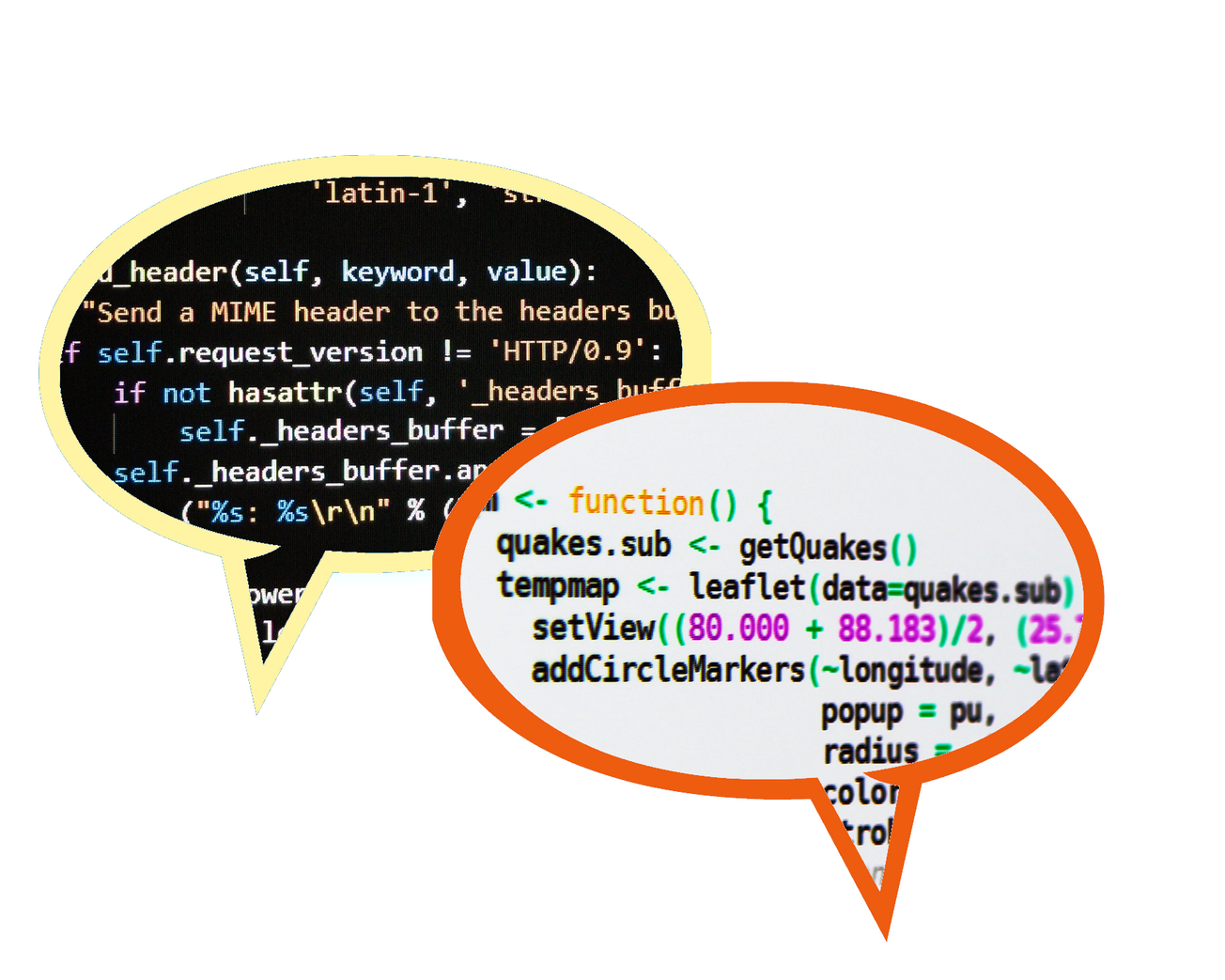By Vilhelmiina Haavisto, SciTech Editor
Not a ‘maths person’? No problem! New research shows that your language abilities may be more helpful when learning to code.
Research from the University of Washington has suggested that an aptitude for learning languages may be a stronger predictor of your ability to learn to code than basic maths or numeracy skills. This may seem surprising at first, as coding is often associated with complex and impenetrable technology. ‘Many barriers to programming,’ says Dr Chantel Prat, Associate Professor of Psychology and the study’s lead author, ‘are centered around the idea that programming relies heavily on math abilities’.
However, this misconception was not apparent in this study’s data though, with some more thought, it is obvious why. Writing code and learning a language have many things in common and in many ways, they have a similar fundamental basis. There are grammar and vocabulary rules to follow, and these elements can be combined to generate meaningful commands.
Common misconceptions about programming:
— 𝘔𝘢𝘳𝘬𝘰 ⚡ 𝘋𝘦𝘯𝘪𝘤 (@denicmarko) March 14, 2020
❌ You have to memorize everything
❌ You have to learn everything
❌ Women can’t code
❌ You need to excel in maths
❌ You have to go to University to learn to code
❌ Programmers are anti-social
❌ Coding is boring#100DaysOfCode
Programming and language-learning also have many shared cognitive functions, including problem solving and the use of working memory. In the study, people with no programming background were first tested on their math, language, and general cognitive skills. Then, they were given exercises and quizzes to do in Python, a popular programming language.
| It's the climb - how to set (and achieve) your goals
Prat explained that with their data, they were able to explain ‘over 70 percent of the variability in how quickly different people learn to program in Python’, adding that ‘only a small fraction of that amount was related to numeracy’. The people who learned Python the fastest and with higher accuracy often had both problem solving and language skills. Indeed, language test scores were found to be the strongest predictors of the participants’ rate of learning the Python language.
However, this is not to say that numeracy played no role at all – overall, numeracy test scores explained about 2 percent of the variance in learning rate, while language test scores explained 17 percent. Cognitive skills were the most significant predictor, accounting for 34 percent of the variance.
The misconception that learning to code requires a high level of math or other technical knowledge about computers can be off-putting to would-be learners. Prat cited ‘prerequisite courses [for university-level programming courses]’ and ‘stereotypes of what a good programmer looks like’ as major barriers to more people, particularly women, learning to code. Other research has shown that these kinds of barriers actively reinforce stereotypes about coding as a white, masculine activity and field to pursue, deterring women as well as people of colour in the process.
| The urgent need to STEMpower women
‘Learning to program is hard,’ Prat acknowledges, ‘but is increasingly important for obtaining skilled positions in the workforce.’ Research like that of Prat and her colleagues can help to dispel long-held misconceptions about programming, and there are many organisations in the UK that are working with young women and people of colour to nurture interests in programming and a career in computer science.
Featured image: Flickr / Mashup Communications, Jonathan Cutrer, asheshwor
Are you considering learning to code? Let us know!









